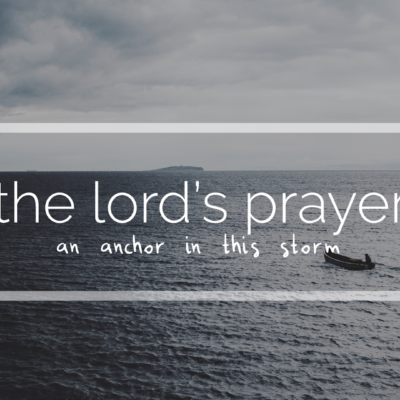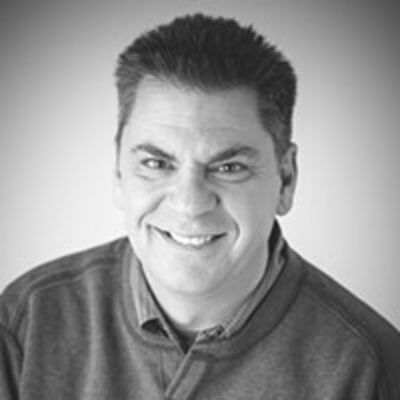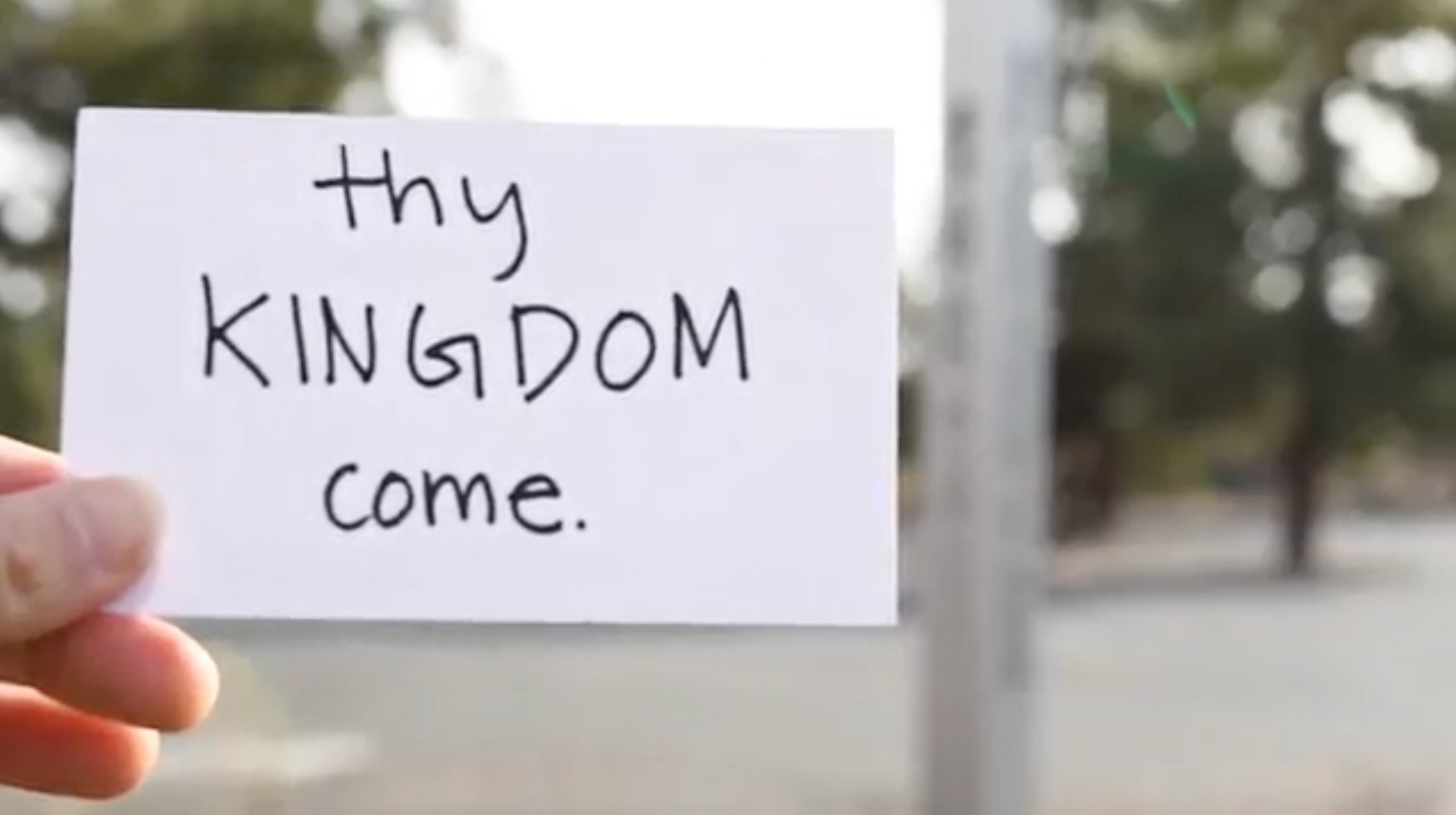Feb 6th, Thy Kingdom Come – Peacemakers and Dream Builders, with Rev. Dr. Steven Koski
A Part of the Series:
Rev. Dr. Steven Koski
Other Articles in:
Feb 6th: Thy Kingdom Come – Peacemakers and Dream Builders, with Rev. Dr. Steven Koski.
We’re continuing our worship series on the prayer Jesus taught. You know, I prayed the Lord’s prayer most of my life with a certain rhythm, placing a comma and pausing where there actually isn’t a comma. Thy Kingdom come, thy will be done. Pause. On Earth as it is in heaven. Now notice the difference. If you don’t pause, thy Kingdom come, thy will be done on Earth as it is in heaven. Thy Kingdom come, on Earth. That’s the heart of the prayer. Not that we might punch a ticket to heaven, but that we might bring something of heaven here on Earth, that we might bring the peace, justice, love of God here on Earth. We’ve been suggesting the Lord’s prayers more than just a prayer we pray during worship. Jesus in teaching us this prayer is introducing an orientation of the heart, a way of living in a world that reflects the love, purposes and priorities of God. I mean, praying thy Kingdom come is a pretty radical prayer. What is God’s Kingdom? It’s important to realize the Kingdom of God. In the first century, when Jesus taught this prayer was a political metaphor as well as a religious metaphor.
In the world of Jesus, there were real kingdoms for the audience of Jesus, who were mostly poor and oppressed. They knew what it felt like to have the Kingdom of Rome’s foot on their throats, and they were being taught to pray for the Kingdom of Rome to be replaced by the Kingdom of God. Now the Kingdom of God is what the world would look like if God was in charge. It’s God’s dream for life here on Earth. And the Jewish audience listening to Jesus were familiar with this dream because images of God’s dream are found throughout the Jewish Bible, and one of the best expressions of the stream is in the fourth chapter of the Prophet Micah. They shall beat their swords into plough shares and their Spears into pruning hooks. Nation will not take up sword against nation, nor will they train for war anymore. The dream of God is for a world of peace in which the instruments of war are transformed into the instruments of agriculture. This dream feels urgent as the prospects of war loom large in Ukraine. And Micah. The Prophet Micah further paints a picture of God’s dream. And every family shall sit under their own vine or fig tree.
Now it’s an image of every family, every family having their own piece of land, not just to get by and barely survive, but it’s a dream of every family with its own vine and fig tree. This is a dream of a world of economic justice, a world where everyone has shelter, where there’s enough for everyone, where everyone has an opportunity to flourish. That’s what God’s Kingdom looks like. And this passage in Micah ends with and no one shall make them afraid. Now Jesus is saying to pray, seek justice, love one another in such a way that you make God’s dream a reality where no one lives in fear. Many scholars today remove the G of Kingdom and talk about God’s Kin – dom, a world of kinship, a world of kinship that tears down the walls that divide us. Can you imagine a world of kinship where no one has to live in fear? That’s God’s dream, and we are God’s dream builders.
January 27 was Holocaust Remembrance Day, the 77th anniversary of the liberation of Auschwitz. That very day. Just a few days ago, swastikas were carved into the pillars of Union Station in New York. Only a few weeks ago, a Rabbi and members of his congregation were held hostage for 11 hours in Texas.
Rabbi Angela Buchdahl of Central Synagogue in New York City said, if you’re a Jew in America today and you’re not feeling unsettled, then you’re not paying attention. There’s been an alarming rise in antisemitism and expressions of hate in our country. You know, there was a nationwide survey done this year among those under 40 years of age. I guess they’re called Millennials and Generation Z, where 63% had no idea 6 million Jews were murdered in the Holocaust. Over 50% couldn’t name one concentration camp or ghetto. And 56% said they have seen Nazi and other symbols of hate on social media in the last year. There are many who worry the seven decade rallying cry of never forget is being forgotten. Elie Wiesel said that the importance of education and remembering is so that no one’s future is like my past. If we don’t learn from history, we will repeat history, which is alarming considering the current attempts to whitewash history and eliminate anything that might make us uncomfortable about our past. This is a moment for all of us to commit ourselves to confronting hate, a moment for all of us to not just pray but live thy Kingdom.
Come on Earth. I am so honored to have as my guest today, Rabbi Johanna Hershenson who is the Rabbi of Temple Beth Tikvah. We at First Presbyterian are honored to partner with Temple Beth Tikvah, honored to share worship space, to share friendship, to share kinship. I particularly wanted to welcome Rabbi Johanna today as a way of saying we’re with you and your community and we want to do whatever we can to denounce antisemitism and confront hate. So, Rabbi Johanna, welcome. It’s so great to see you. I wish we could be in person, but I’m glad to spend this time with you. First of all, these are such disturbing and challenging days in so many ways and in so many respects. So how are you?
I’m laughing because I want to answer you by saying I’m fine. And the truth is, I am fine. And the world is kind of crazy. And it’s very easy. I’m noticing lately to think I’m not fine, even though I’m healthy, my husband’s healthy, the kids are healthy, work is good. It’s a crazy time, and I’m finding that it just takes a lot of effort to be here now. And for that, I also want to thank you for having me. It’s an honor.
I’m saying a lot these days that sometimes just being okay is victory.
No kidding.
Sometimes just surviving the day is victory. Earlier, I shared a little bit about my understanding of God’s dream or God’s vision for humanity. I’d be really curious of what’s your understanding not only of God’s dream and God’s vision, but our role in making that dream a reality.
So in true character, I have to say, I don’t know from God’s vision or God’s dream, but I do know that the ancient rabbis suggest that our practicing of a day of rest, our taking pause and noticing how the planet sustains us, how communities sustain us, how history has made this moment possible, is a way to practice noticing that we really are okay when we think that we’re not. One day a week, the rabbis teach us, you have enough. You don’t have to work. You don’t have to tinker. Notice, you have enough. In fact, this message comes from the Torah, which means it does come from God. And the message is something I like to refer to a little tongue in cheek as the “Manna Test”. It’s older than the Sabbath. If we remember the ancient Israelites wandering in the wilderness, they are receiving Manna daily. And you may or may not remember that they are only allowed to take the portion that they need each day. And on Friday there’s two portions so that they shouldn’t have to gather on Saturday. So which came first, the Sabbath or the Manna? That’s another story, another discussion. But if the Israelite tried to take a little extra, maybe it was a child’s birthday, maybe they’re afraid they’re not going to make it out tomorrow.
That extra Manna, we are taught would rot. The “Manna Test” is having the humility to say this is enough, just as it is. And I think this is what I hear among my Christian friends and neighbors when we talk about God’s vision or God’s dream. It’s something about noticing that we exist is the journey. That we’re here.
I love that idea. When I think about God’s dream and I think about what I call kind of the sacred privilege to be a partner or a participant in trying to make that dream a reality, of how important it is to also remember that it’s not up to me to be able to stop and to rest and to recognize that I do have enough and that I am given what I need in any given moment. Rabbi Cytron-Walker was taken hostage in Texas with members of his congregation, and it seems like his kindness and humanity were used against him. He welcomed the stranger as we probably would do, as we’re all called to do, and gave him tea. And his reward was to be taken hostage at gunpoint. Certainly, we can’t be naive. We really need to hold important conversations about how we keep our congregations safe as we gather. But at the same time, I’m worried if we build fortresses around our sanctuaries and fortresses around our hearts, then hate wins. So I’m curious, how do we keep tender and open Earth in this world that is so gripped by fear and that lives like a clenched fist?
What are your thoughts on that?
Yeah. Rabbi Cytron-Walker’s experience really shook a lot of, not just Jews, but clergy because of our COVID time. He was in the building with only a few members of the congregation live streaming, some volunteers helping. And his experience, I think, also deeply resonates because Pastor Koski, I think you or I or any of our colleagues among the local clergy here in central Oregon would have done exactly the same thing. And you mentioned a word that many of us have encountered in conversations with our congregations that there is some kind of naivety, that we make choices between naivete and keeping our communities safe. And I did actually attend several Zoom sessions after this incident in Texas with Rabbi Cytron-Walker in which he recounted the experience that he had. And his words are really telling. He did very much invite this gentleman in, offer him a cup of tea, a place to sit and use the toilet, leave if he wanted, while the Rabbi was doing the livestream or remain in the kitchen and the Rabbi. I was going to come back after the live stream to continue conversation. Rabbi Cytron-Walker noticed some irregularities in the conversation that he had with this gentleman.
And like you or me, he thought to himself how often this is the case when somebody’s in a crisis or a home insecurity kind of a situation. So while he took note of the individual stories not adding up, he continued moving forward with that hospitality. I don’t think that making a fortress keeps us safe. I think that relying on what law enforcement has learned in decades of keeping us safe in society, we can actually gain some skills and some awareness that allow us to do both.
Long answer to a short question.
Important that it seems like a real balance between the wisdom of being trained for such situations, continuing to allow our hearts to be open to be who we are called to be, and at the same time stand in solidarity with one another and work together to do whatever we can to make sure those situations don’t happen, to build the kind of world where those situations rather than don’t happen, or at least happen less frequently than they seem to be happening. I appreciated what Rabbi Angela Buchdahl, who I believe is it Central Synagogue in New York?
Yeah.
What she said after what took place in Texas. She said, this is the time when our instinct is to isolate and protect ourselves. But it’s the time where we actually are called back into community, not to isolate, but to be in community. I think her words were she said, this is the time to show up for fearlessness in the face of fear, that none of us can do it alone, that we really need the support of one another. So I’m curious, what are ways that we can show up for fearlessness in the face of fear? What are ways that we at First Presbyterian can be in solidarity with you and the congregation of Temple Beth Tikvah?
Yeah. I think heeding Rabbi Buchdahl’s message is a start. I mean, it’s just so lovely that you, Pastor Koski, heard this message, and we’re moved to reach out and connect and create this opportunity for us to dialogue, not only supporting, but learning and touching base, checking in with each other. Rabbi Buchdahl’s involvement and motivation for comment was particularly interesting in that this event was one that was not about killing Jews. And at first, the Jewish community throughout the United States was reticence in hearing from the FBI that even some people didn’t want to call it antisemitism. But I think the intention was not to not call it antisemitism, but to encourage people to feel safe, that there was no reason to think other Jewish communities were under threat. It was a very specific situation, but there was an antisemitic trope beneath it that was revealed. This hostage taker, even if he was in a mental health crisis, in addition to some of his own beliefs and radicalization as an individual, believed that Jews control governments, the American government and other world governments. And his request when he started engaging with Rabbi Cytron-Walker and ultimately the FBI was to speak to Rabbi Angela Buchdahl, who had been listed in the publication last year as one of the 50 most influential rabbis in America.
Because, of course, one of the most influential rabbis in America could call the government and release a prisoner. While this is like a silly form of antisemitism, I can tell you that this is the piece that really scares Jews and makes Jews want to hide. Right. My discomfort with perceived disproportionate power and wealth in Western Democratic society, naming that is not very popular because we don’t want to scare people on the one hand. On the other hand, this event really wasn’t about, like I said, killing lots of Jews. But that message is what we heard when we saw it on television. And there is no doubt to me that if I feel like I need to hide, I definitely need to reach out. If I notice that I’m embarrassed or needing to deflect an attention on me, that also indicates to me that I think somebody might believe that trope. Right. And the only way I can work against that very subtle anti Semitism is to be known as a Jew and not fit in that categorization. One of my professors before I finished rabbinical school. Sat down our class and said, “boys”, that tells you how old he was.
“Boys”, don’t wait to get to know your Christian neighbors until you need them. Get to know them when you don’t need them. Only then will they respond to the need without you having to ask. Right. And we can’t forget that as clergy because so much of our time pastor Koski is serving our congregation and its needs. But it’s a moment like this where we reach out. It’s a moment in the near future where I imagine some of us progressive clergy in central Oregon and we’ll look at some of the possible trainings and risk assessments for Central Oregon. And how can we be good citizens together and then bonding doing that, learning together. This is how we get to know each other. But this is also how we fight hate.
Right? Well, I’m so glad that you’re my neighbor.
Me too.
It’s so great to spend this time with you. And I’m glad that we share kinship. And I want to make sure to declare as definitively and emphatically as I possibly can that we at First Presbyterian stand against any form of antisemitism also are happy to be humble enough to know when we don’t see what we don’t see. And we stand against any expressions of hate. And we stand with you. And we stand with Temple Beth Tikvah. And we commit ourselves to joining you in doing what we can to make God’s dream a reality. That dream where no one lives in fear. And I would be so honored if you’d be willing to offer us a blessing.
Thank you.
Oseh Shalom Bimromav. May God who forms peace in the highest portion of the heavens.
Hu ya’aseh shalom aleinu. May God be a source of peace in our lives. But more importantly, may we who think of ourselves as created in the divine image take it upon ourselves to be that source of peace. A source of kindness, a source of joy in the lives one another. For that we all say a hearty Amen.
Amen. And peace to you.



